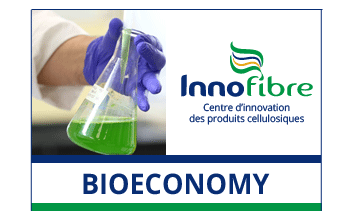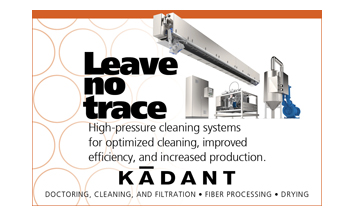For more than a century, Rothschild Mill has operated on the Wisconsin River five miles south of Wausau, Wisconsin.
From its humble beginnings in 1909, the mill has grown to produce Cougar® and Lynx®, some of the world’s finest printing and publishing papers. It has also given rise to a thriving community that many of its staff call home.
“I never expected 28 years ago when I started in the environmental department that I would still be here. I thought I would work two to three years and then move back home to Green Bay,” says Dave Faucett, who has served as the mill’s general manager since 2017. “But the culture and pride at this mill are addicting. It’s fun to be part of the team here, and Rothschild is a great place to raise a family. It was really easy to stay here.”
From empty land to thriving mill
Before there was a mill in Rothschild, there was a group of investors who held state-granted rights to harness waterpower along navigable streams and rivers. In 1909, the Wisconsin Legislature declared that rightsholders had to make use of their rights or risk losing them.
The group decided to build a paper mill, and they purchased a parcel of land on the east bank of the Wisconsin River from the Rothschild Power Company. On February 3, 1909, Marathon Paper Mills Company incorporated and began construction on the new mill. The project included a dam, mill buildings and houses for mill employees in a small settlement that would eventually become the Village of Rothschild.
In late 1910, the first sheet of paper was made, and by January 1911, the mill was fully operational, with three paper machines and the latest equipment and labor-saving devices known to man.
During the next century, the Rothschild Mill became a leader in producing quality paper and packaging products. Eventually it focused on food packaging, such as waxed paper wrappers and butter cartons, as well as lignin-based thermoplastics, household tissue and even vanilla flavoring.
The birth of the Cougar® brand of premium paper
But for the past half century, Rothschild Mill has made some of the world’s finest commercial printing paper, chosen by presidents, luxury brands, best-selling authors and others who want to create maximum impact with their printing projects. Cougar papers have a reputation for top quality, consistency and a mystique unlike any other paper on the market.
In 1969, the mill added a fine paper machine, a change that set the course for the mill’s future. In 1972, the machine began producing the Cougar brand of premium printing and publishing papers, and by 1997, then-owner Weyerhaeuser committed 100 percent of the mill’s capacity to producing premium printing papers.
Patrick McKeough, a 35-year employee at the mill, remembers the early days of Cougar production. He started washing dishes in the chemical lab the summer after he graduated from high school in 1952, and he continued to work summers while pursuing a chemical engineering degree. After earning his degree, he returned to the mill as a process engineer from 1959-1965. There were a few years when he worked at other sites and other companies, but he came back to Rothschild Mill for good in 1973, and he spent the rest of his career as a pulp mill superintendent and pulp technical superintendent.
“At the time, the biggest attraction for me was that we were using every part of the wood, or close to it. We were taking the waste from cooking the pulp and making all kinds of byproducts. I liked working with a renewable resource, as opposed to mining or plastics,” he says. “Later on, we wanted to make the best publishing paper, and we needed the best pulp to do that. Working in the pulp mill was very rewarding, both technically and because of the good people that work here.”
McKeough was there when the mill went chlorine-free, and he worked on projects to reduce water usage, reduce air and water pollutants and improve pulp quality.
“Those are important environmental and safety issues. And we worked hard to make the best hardwood sulfite pulp we could to give Cougar paper the quality it’s known for today,” he says. “We took a lot of pride in that, and I know people still do.”
Joining the Domtar family
In 2007, the Rothschild Mill joined the Domtar family of mills. Today, it produces our Cougar and Lynx® brands of premium printing and publishing papers.
The mill celebrated Cougar’s 50th anniversary in 2022 with great fanfare. Rothschild remains the home of Cougar, the number one premium opaque paper in North America.
The mill is one of the largest employers in the now-bustling community of Rothschild, Wisconsin, supporting about 325 local jobs and contributing more than $270 million to the regional economy each year.
The Rothschild Mill beneficially reuses about 98 percent of its manufacturing waste. A large portion is used to fuel a biomass power plant, built in cooperation with We Energies, the local electrical company. “That plant, which was put into service in 2013, produces all of the steam we need to power our mill, and it generates electricity for local homes and businesses,” Faucett says.
A century of community partnership
Like all mills in our network, Rothschild Mill is a proud corporate citizen. The Village of Rothschild developed because of the mill, and since its earliest days, the mill has helped the community thrive.
“We’re incredibly active in the community through volunteer work and financial contributions. But we’ve also been a member of the local Chamber of Commerce for more than 100 years,” Faucett says. “We do a lot of education and promotion within the community about the benefits of paper making, and we have a lot of third- and fourth-generation families who live and work here, which I think is pretty unique in today’s world.”
Each year, the mill connects with more than 1,000 local students through education programs, and it contributes about $30,000 to local causes.
One of the achievements Faucett is most proud of during his time as general manager is when the mill earned the 2022 Domtar “Tom Detwiler” Safety Excellence Award for achieving 2 million manhours without a lost time injury.
“This was over a five-year period with perhaps some of the greatest challenges this mill ever encountered,” he says. “It feels really good to be profitable, make quality products and perform well environmentally, but perhaps the greatest feeling of all is knowing all employees are going home to their families every day, safe and sound. Our employees expect and deserve that, and that is a reputation to be proud of.”
An eye to the future
What’s next for the Rothschild Mill? Faucett says they’re looking at some capital improvements and some exciting projects in research and development. But ultimately, he believes the team at the mill will ensure a bright and successful future.
Earlier this year, the mill was recognized as one of WSAW-TV’s “5 Premier Places to Work in North Central Wisconsin.”
“Our people set us apart from our competition. The mill employees are extremely proud of producing some of the company’s premium products such as Cougar and Lynx, but they aren’t willing to rest on previous achievements,” Faucett says. “We understand that our core values of agility, innovation and caring will be required to remain successful long-term. It will be those values, along with dedication and hard work, that will carry this mill into the future.”
Source: Domtar Newsroom













